On June 24, 2022, the Standing Committee of the National People's Congress issued a decision on revising the Anti-Monopoly Law of the People's Republic of China, making the first revision of the Anti-Monopoly Law that has been in place for 14 years (the revised Anti-Monopoly Law is hereinafter referred to as the “AML (2022)”). Then on June 27, the State Administration for Market Regulation (“SAMR”) issued the supporting rules Provisions of the State Council on the Threshold for the Declaration of Concentration of Undertakings (Draft for Comments) (“Draft for Comments on Declaration Threshold”) and the Provisions on the Review of Concentration of Undertakings (Draft for Comments) (“Draft for Comments on the Review Provisions”). The aforementioned law and draft rules have made many significant revisions to the review of the concentration of undertakings at both substantial and procedural aspects. We summarized the main revisions and their implications and provide compliance recommendations as follows.
I. Clarify the substantial judgment criteria for the review of the concentration of undertakings
1. Clarify the main considerations for the judgment of control
The purpose of the anti-monopoly review on concentration of undertakings is to prevent the potential formation or enhancement of market power in advance, so as to maintain a reasonable market structure and prevent excessive concentration of market power.[1] The premise of the anti-monopoly review of concentration of undertakings is to judge whether the business transactions constitute “concentration of undertakings”. According to Article 25 of the AML (2022), the core consideration is “control” / “exerting decisive influence” (collectively, “control”). Since the meaning of “control” varies between the Anti-Monopoly Law and Company Law, it is the fundamental issue to determine whether an undertaking has acquired “control” over other undertakings in the previous practice.
Highlights of the revision
Article 4 of the Draft for Comments on Review Provisions clarifies the considerations for determining “control” from the perspective of the Anti-Monopoly Law at the level of departmental rules, and at the same time specifies the connotation of “joint control”. The main considerations for an undertaking to acquire “control” over other undertakings include:

Figure 1 Considerations for determining “control” over other undertakings
In addition, according to the “Annual Report on China's Anti-Monopoly Law Enforcement (2021)” issued by the SAMR and its specific practice, undertakings in the minority equity acquisition with “veto power” regarding the aforesaid considerations (such as business plan, financial budget, appointment and removal of senior managers, etc.) over the target company, will also be deemed to have acquired “control”, thus triggering the declaration obligation.
Compliance recommendations
(1)First of all, it should be made clear that the “control” in the Anti-Monopoly Law is not identical to that in the context of corporate law, and the “veto power” may still be identified as the right of “control” under the Anti-Monopoly Law. Thus, the notion that minority equity investment does not constitute a concentration of undertakings should be eliminated.
(2)During M&A investment, investors should reasonably design the transaction terms and the target company's governance structure according to the investment objectives and the reality of the deal. Investors who do not intend to gain control over the target company should avoid making arrangements in the transaction documents to have “control” over the target company. For example, the veto can be adjusted to an investment condition (rather than controlling the daily operations and management of the investee company) to reduce the possibility of obtaining “control” and prevent the risk of implementing the concentration of undertakings illegally.
(3)Sort out the term sheet to identify terms that may trigger declaration obligations and adjust them according to the investment objective.
2. Adjust the threshold for concentration of undertakings: raising the turnover threshold and introduce a new condition that may still trigger a declaration obligation even if the turnover threshold is not met
According to the review system of concentration of undertakings, after determining that a transaction constitutes a concentration of undertakings, it is necessary to review whether the threshold has been met according to the declaration threshold prescribed by the State Council (“Declaration Threshold”). Article 3 and Article 4 of the Draft for Comments on Declaration Threshold adjusted the Declaration Threshold since 2008, on the basis of raising the turnover threshold and introducing a new declaration threshold.
Highlights of the revision
(1)Raise existing turnover threshold
Due to the strengthening of law enforcement and the improvement of undertakings' awareness of compliance, the number of concentration of undertakings cases concluded in 2021 reached 727, a year-on-year increase of 53.7%[2], and thus the pressure on the regulatory authorities has greatly increased. In order to meet the needs of the economic development and relieve the pressure on the limited law enforcement personnel, the revision raised the turnover value in the original declaration threshold from RMB 400 million yuan, 2 billion yuan, and 10 billion yuan to RMB 800 million yuan, 4 billion yuan, and 12 billion yuan. For details, see the figure below.
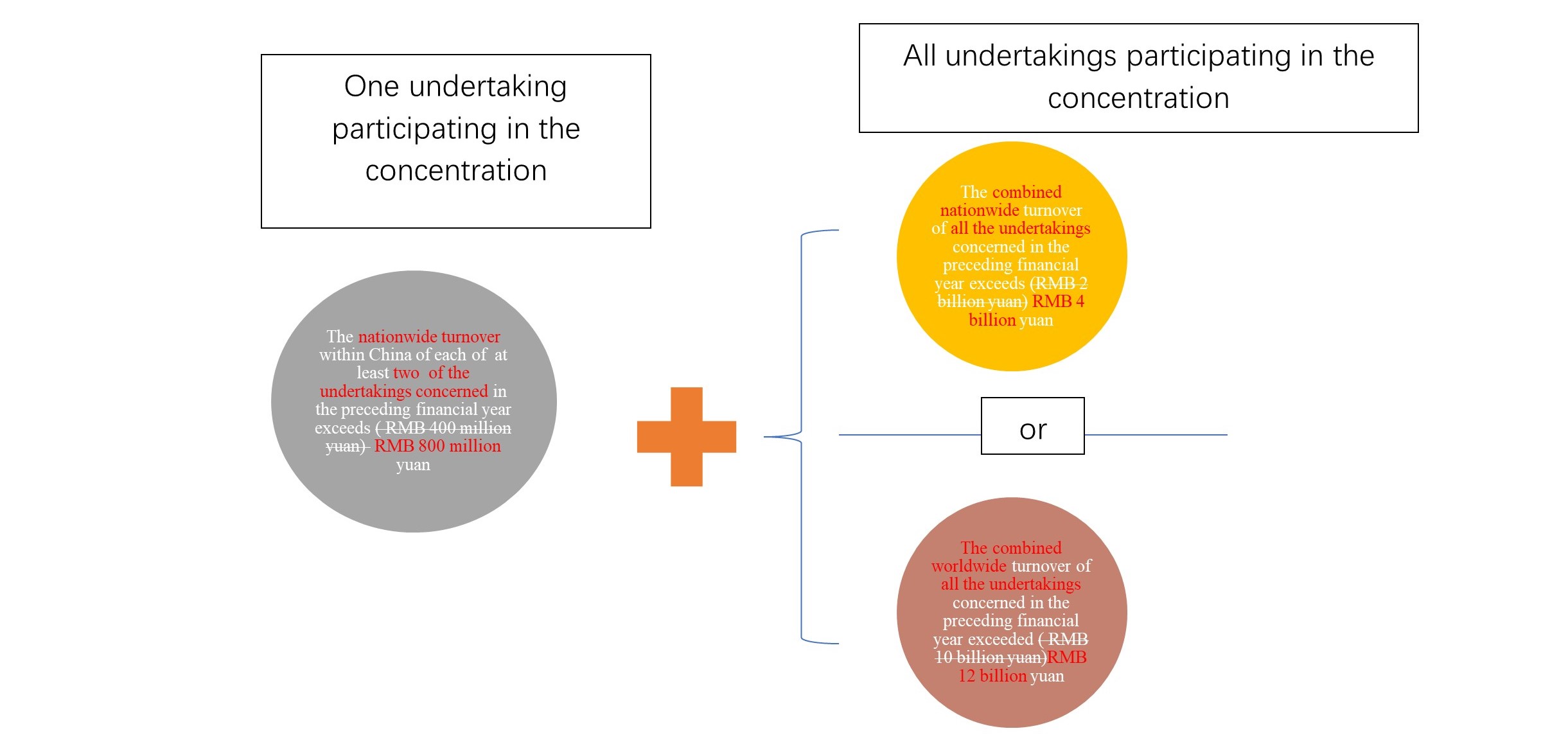
Figure 2 Schematic diagram of turnover threshold for declaration
Once the new turnover prescribed in the Draft for Comments on Declaration Threshold has finally been adopted, it will ease the anti-monopoly compliance pressure of small and medium-sized enterprises in their M&A transactions, help stimulate investment and financing activities targeting small and medium-sized enterprises, reduce transaction costs and improve economy efficiency.
(2)Optimize the declaration threshold and introduce the new condition that maybe still trigger declaration obligation even if the turnover threshold is not met
The Draft for Comments on Declaration Threshold optimizes the declaration threshold. Under the circumstance that the above-mentioned turnover threshold is not met, when implement M&A activities, enterprises with a turnover of more than 100 billion yuan in Mainland China will be included in the scope of review with certain conditions (see the figure below). Failure to declare as required will constitute an illegal implementation of concentration of undertakings and may face hefty administrative penalties.
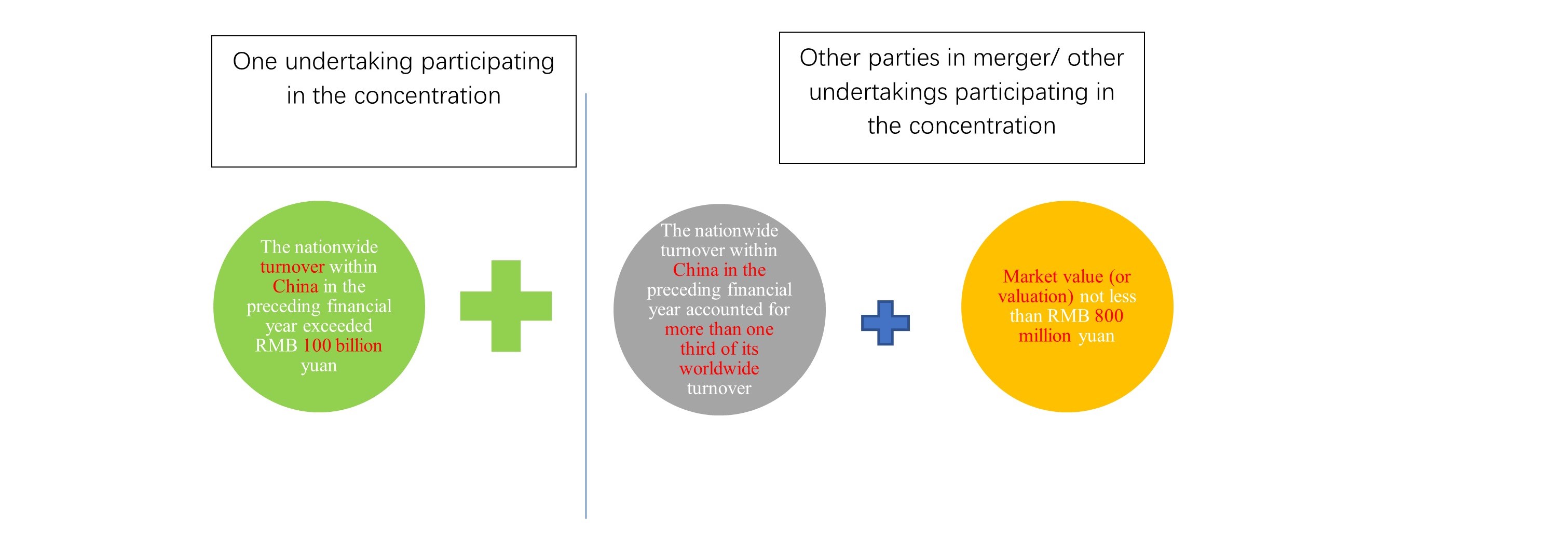
Figure 3 Schematic diagram of the new condition that may trigger declaration
This new declaration threshold is intended to regulate the “Pinch the tip M&A” carrying out by large enterprises whose turnover exceeds hundreds of billions, such as the previous Didi merger with Uber, etc. and to prevent large enterprises from launching “killer acquisition” of startups whose turnover has not reached the threshold. This is not only in line with the current international antitrust law enforcement trend, but also reflects the emphasis of the AML (2022) on the value of encouraging innovation.
It is worth noting that in practice, various valuation techniques such as market method, income method and cost method are usually used for the equity of non-listed companies[3] and the market value of enterprises will also change over time. Thus, how to determine the market value/valuation needs to be further clarified.

Figure 4 Summary of conditions for proactively declaring concentration of undertakings
Compliance recommendations
(1)Enterprises with annual turnover exceeding 100 billion yuan should be more cautious when conducting investment and M&A activities, especially those in the financial, technology, and people's livelihood industries which are the focus of regulatory authorities. Antitrust professionals should be introduced early in the transaction to evaluate whether a declaration is required.
(2)Once deciding not to make a declaration, special consideration shall be given to the risk of being required to make a supplementary declaration or being investigated afterwards by the regulatory authorities if evidence shows that the concentration of undertakings has or may have the effect of eliminating or restricting competition.
(3)For enterprises with a turnover lower than the threshold of 800 million yuan, they are not completely “released”. If they have obtained or retained control in the concentration transaction and other undertakings participating in the concentration reaches the turnover threshold, then it is still necessary to cooperate with other undertakings to carry out declaration activities.
3. Clarify the connotation of “last financial year”
In the previous practice of declaration of concentration of undertakings, there are different views on the judgment of the “previous financial year” in the turnover threshold, that is, the date of submitting the declaration materials and the date of signing the transaction documents. Especially at the end of a calendar year, the difference between two dates is likely to result in a completely different baseline for calculation.
Highlights of the revision
Table 1 Criteria for the judgement of “Last Financial Year” | |
Draft for Comments on Review Provisions | Highlights of the Revision |
Article 8 | “Last financial year” in the calculation of turnover: refers to the preceding financial year on the date of signing the transaction documents. |
Article 65 | The baseline of fines for illegally implementing concentration of undertakings: the so-called “preceding year” refers to the financial year preceding the date of illegally implementing concentration of undertakings. |
The abovementioned timing has different connotations and have a huge impact on undertakings. This clarification will help undertakings adjust their expectations and reasonably arrange the timeline for the transactions.
Compliance recommendations
It is recommended for the enterprises to estimate and reasonably design the transaction timetable during the transactions, and at the same time advocate all parties to advance the transaction according to the timetable, so as to prevent the unexpected change of the baseline for the turnover calculation and the extension of the transaction time caused by the cross-year problems.
II. Provide a tiered merger review system, and focus on those most high-profile and complicated merger control cases in critical sectors
With the continuous strengthening of China's antitrust enforcement and improvement of law enforcement deterrence, it could be found that the compliance awareness of enterprises has greatly enhanced. In order to improve the quality and efficiency of merger review, it is imminent to establish a tiered merger review system in response to the soared declaration cases.
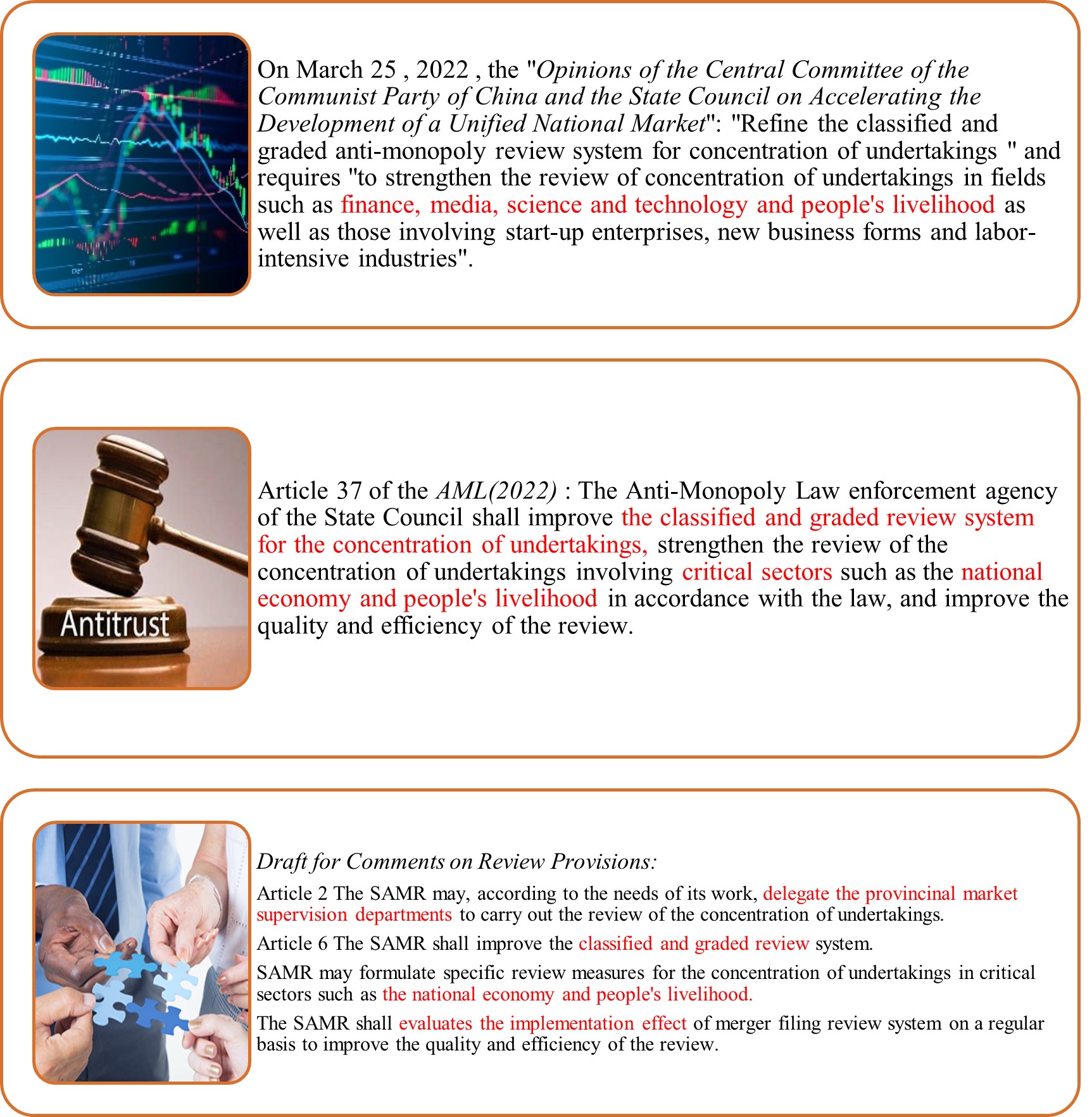
Figure 5 Rules related to the classified and graded review system of the concentration of undertakings
Highlights of the revision
The Draft for comments on Review Provisions further concretize the Opinions of the Central Committee of the Communist Party of China and the State Council on Accelerating the Development of a Unified National Market (“Opinions on a Unified National Market”) and Article 37 of the AML (2022) emphasize on improving the classified and graded review system of the concentration of undertakings, and it is proposed that specific review methods can be formulated for the concentration of undertakings in critical sectors such as the national economy and people's livelihood, and the quality and efficiency of review can be improved by conducting implementation effect evaluations .
The field of “national economy and people's livelihood” is very likely to refer to the fields of finance, media, science and technology, and people's livelihood mentioned in the Opinions on a Unified Market and the Anti-Monopoly Law (Draft amendments for comments). China has formulated special anti-monopoly guidelines for the fields of automobiles, APIs and platform economy, which in a certain sense reflects the principle of classified and graded review. In addition, it remains to be further clarified whether a differentiated review will be conducted according to the type of enterprise.
Regarding the graded review system, possible ideas include grading by the amount of turnover, the authority of the government and other dimensions. The review authority of some cases may be delegated to provincial market regulatory agencies to achieve classified and graded review in the future, and the merger filing review will continue to innovate for the purpose of improving review efficiency and facilitating enterprise declarations.
Compliance recommendations
(1)Keep close tabs on the legislative trends of the SAMR, especially whether special review measures have been introduced in the fields of finance, science and technology, media, and people's livelihood[4]. Once the classified review measures are introduced, the review of concentration of undertakings in relevant key industries will be more detailed. Enterprises could assess the antitrust risks they may face in their investment and financing activities in a timely manner and take countermeasures as soon as possible.
(2)Pay attention to the pilot project of merger filing reviews conducted by provincial antitrust law enforcement agencies and summarize the characteristics of their law enforcement practices to facilitating the future declaration activities.
III. Clearly define the situation of “gun jumping” and provide specific guidance for enterprises
Highlights of the revision
The premature implementation of the merger (“gun jumping”) mainly includes two types: “should have been notified to the authority” and “taking steps to implement their merger before it is approved by the authority”. In practice, the judgment of the first type is relatively clear, but there is no consensus in practice on what constitutes the “taking steps to implement their merger before it is approved by the authority”. Article 55 of the Draft for comments on Review Provisions clearly define the situations of “gun jumping”. Before receiving merger clearance, no one should jump the gun prior to closing (prohibited activities see the figure below).

Figure 6 Possible factors that may be identified as a “gun jumping”
Compliance recommendations
(1)The parties in the transaction should reasonably stipulate the obligations and responsibilities of the parties in the transaction documents, and it is not appropriate to stipulate in the transaction documents that it shall enjoy the right of veto over certain important acts of the target company or over the amendment of the articles of association of the company during the transition, etc. It is routine operation to take the completion of the declaration as a condition for closing.
(2)In practice, in order to conduct due diligence and facilitate the schedule of the transaction, it is inevitable to exchange some information in advance, but the parties should aware the risk of exchanging competitive sensitive information. Such information can be handled through a cleaning team of external lawyers to avoid being recognized as “exchanging competitively sensitive information with other undertakings”.
(3)In practice, taking steps to implement the merger before it is approved by the authority could also be identified as “gun jumping” behavior. Lessons from Canon's acquisition of Toshiba Medical[5] must be learned. For a step-by-step transaction, before receiving merger clearance from the antitrust enforcement authority, the previous steps must not be implemented.
(4)Before receiving merger clearance, neither party in the transaction shall directly or assign management personnel to participate in the operation, management and decision-making of the target company.
IV. Complete the supervision of the merger that do not meet the declaration threshold
In February 2021, the Anti-Monopoly Guidelines on Platform Economy issued by the Anti-Monopoly Committee of the State Council and the Anti-Monopoly Guidelines on APIs issued in November both emphasized that the Anti-Monopoly Law enforcement agency shall conduct an investigation according to law to the concentration of undertakings that did not meet the declaration threshold while facts and evidence show that the merger has or may have the effect of eliminating or restricting competition. Article 26 of the AML (2022) clarifies the ex officio investigation power of Anti-Monopoly Law Enforcement Agency from the perspective of law.
Highlights of the revision
Article 7 of the Draft for Comments on the Review Provisions further distinguishes the procedures applicable to the concentration of undertakings that do not meet the declaration threshold while facts and evidence show that the merger has or may have the effect of eliminating or restricting competition. The Anti-Monopoly Law Enforcement Agency of the State Council shall apply different procedures according to the circumstances:
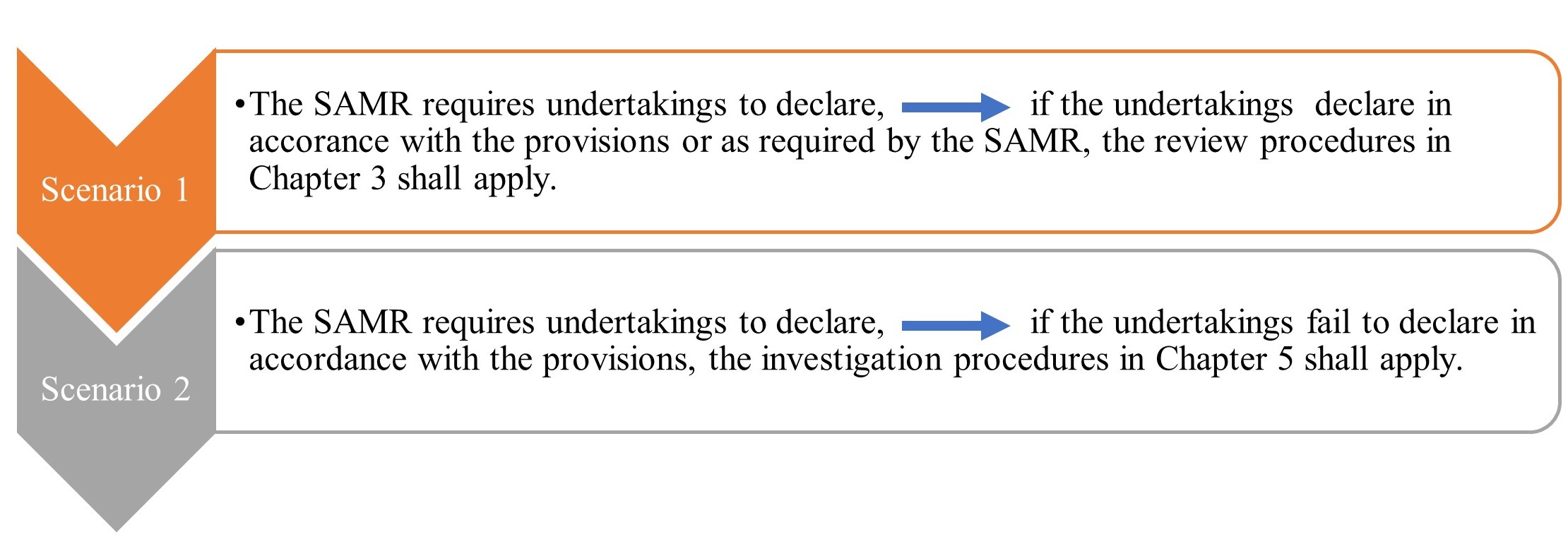
Figure 7 Supervision of the concentration of undertakings that do not meet the declaration threshold
Compliance recommendations
If the proposed transaction involves the acquisition of start-ups or emerging platforms and undertakings participated in the concentration has extremely low turnover, high concentration ratio and few competitors due to the adoption of free or low-price model, then even if the declaration threshold is not met, it is necessary to carefully evaluate whether it has or may have the effect of eliminating or restricting competition and may be required to declare. If the in-house lawyers are not capable to make a decision, external anti-monopoly lawyers should be introduced as soon as possible to carry out professional competition analysis, and actively cooperate with the regulatory authorities to prevent the risk of ex officio investigation.
V. Implement the “stop-the-clock” clause introduced by the AML (2022)
AML (2022) formally adds the “stop-the-clock” clause. In the future, the Anti-Monopoly Law Enforcement Agency can suspend the clock when a statutory situation arises and the review period shall resume once the issues have been resolved, and the enforcement agency shall notify the undertaking in writing.
Highlights of the revision
Articles 23-25 of the Draft for Comments on Review Provisions have detailed provisions on the procedures for “stop-the-clock”. (See the figure below)
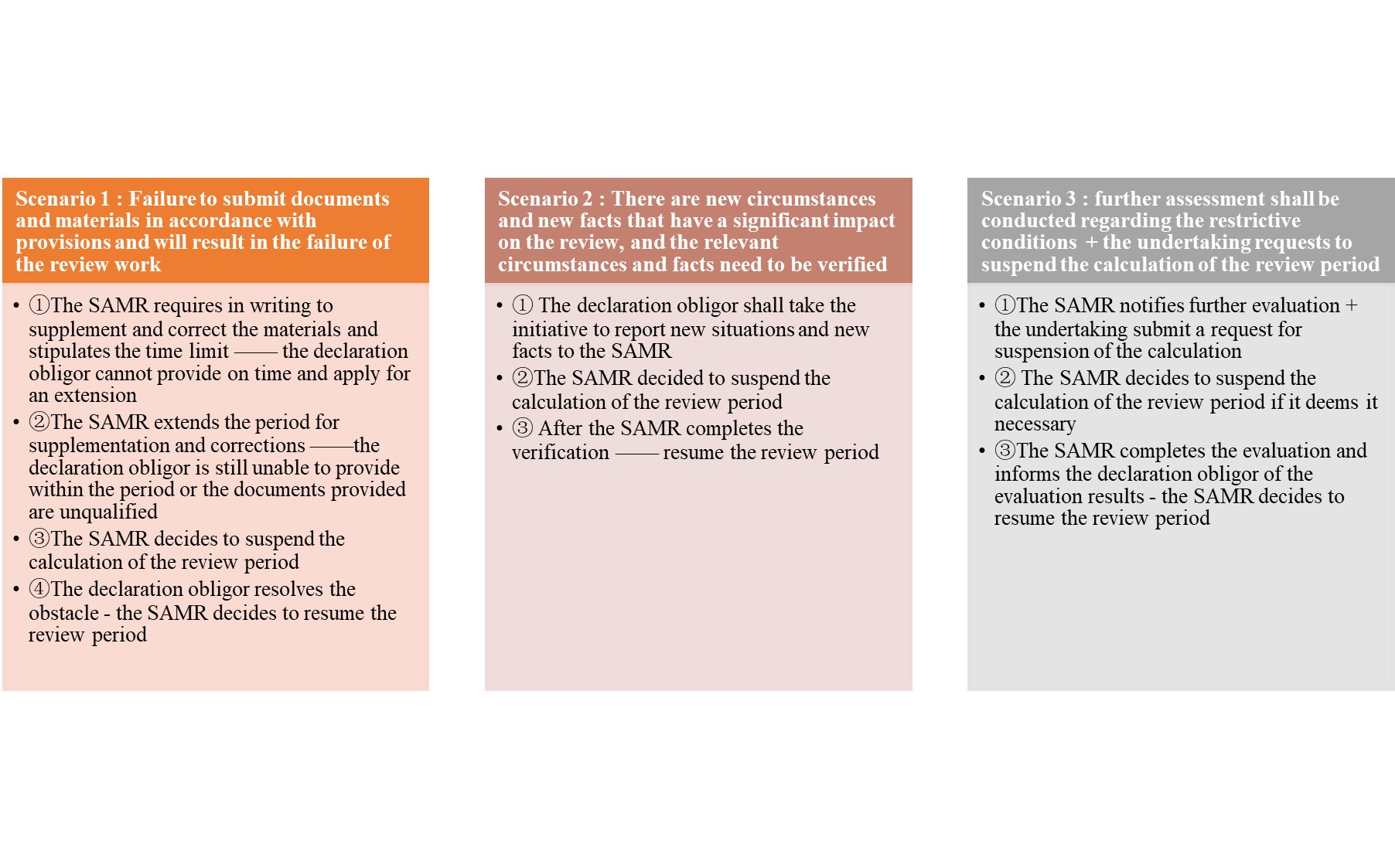
Figure 8 Situations where the “stop-the-clock” applies
Although “stop-the-clock” can eliminate the uncertainty that the regulatory authorities previously required the declaration obligor to “withdraw” the case in order to meet the time limit, the possible “stop-the-clock” also makes the declaration obligor likely to face the uncertainty of the review period.
Compliance recommendations
In order to reduce the uncertainty caused by “stop-the-clock”, it is extremely important to design the timeline of the transaction properly. The relatively clear review period in practice (2 months for summary cases and 4-5 months for ordinary cases) will face great challenges.
If the proposed transaction may trigger the obligation to declare, it is recommended that the relevant parties should engage the anti-monopoly lawyers to evaluate the overall transaction as soon as possible, prepare the declaration materials in advance, and prevent the delivery from being affected due to insufficient preparation of the declaration materials.
If the declaration threshold is met, the application documents should be filled out as fully and completely as possible in the application material filling stage, and communication with the regulatory authorities should be strengthened during this process to prevent the antitrust enforcement authority from pressing the “suspend button”.
The parties shall agree that they will actively cooperate with the review of the merger filing, submit relevant documents and materials in a timely and sufficient manner as required, manage the time well, and at the same time try to reserve enough time for the merger filing review.
VI. Increase the intensity of penalties and refine legal liabilities
Highlights of the revision
The current Anti-Monopoly Law imposes only RMB 500,000 yuan as the top penalty for illegally implementing concentration of undertakings, which means the cost of illegal implementation is relatively low. As a result, there exists so many illegal implementing cases in practice and increases the supervision burden of the regulatory authorities. Thus, the AML (2022) has greatly increased the punishment caps, which is also reflected in Article 65 of the Draft for Comments on Review Provisions:
Table 2 Penalties for illegal implementation of concentration of undertakings | ||
Concentration of undertakings in violation of the law | where there is or likely to be effect of eliminating or restricting competition | Current Anti-Monopoly Law: impose a fine of not more than RMB 500,000 yuan |
AML (2022): cease the implementation of concentration, dispose of shares or assets within a specified time limit, transfer business within a specified time limit or take other necessary measures to return to the state prior to the concentration, and impose a fine of not more than 10% of the turnover of the previous year | ||
where there is no effect of eliminating or restricting competition | Current Anti-Monopoly Law: impose a fine of not more than RMB 500,000 yuan | |
AML (2022): impose a fine of not more than RMB 5,000,000 yuan | ||
In addition, Articles 68 and 71 of the Draft for comments on Review Provisions further implement the relevant requirements of the AML (2022):
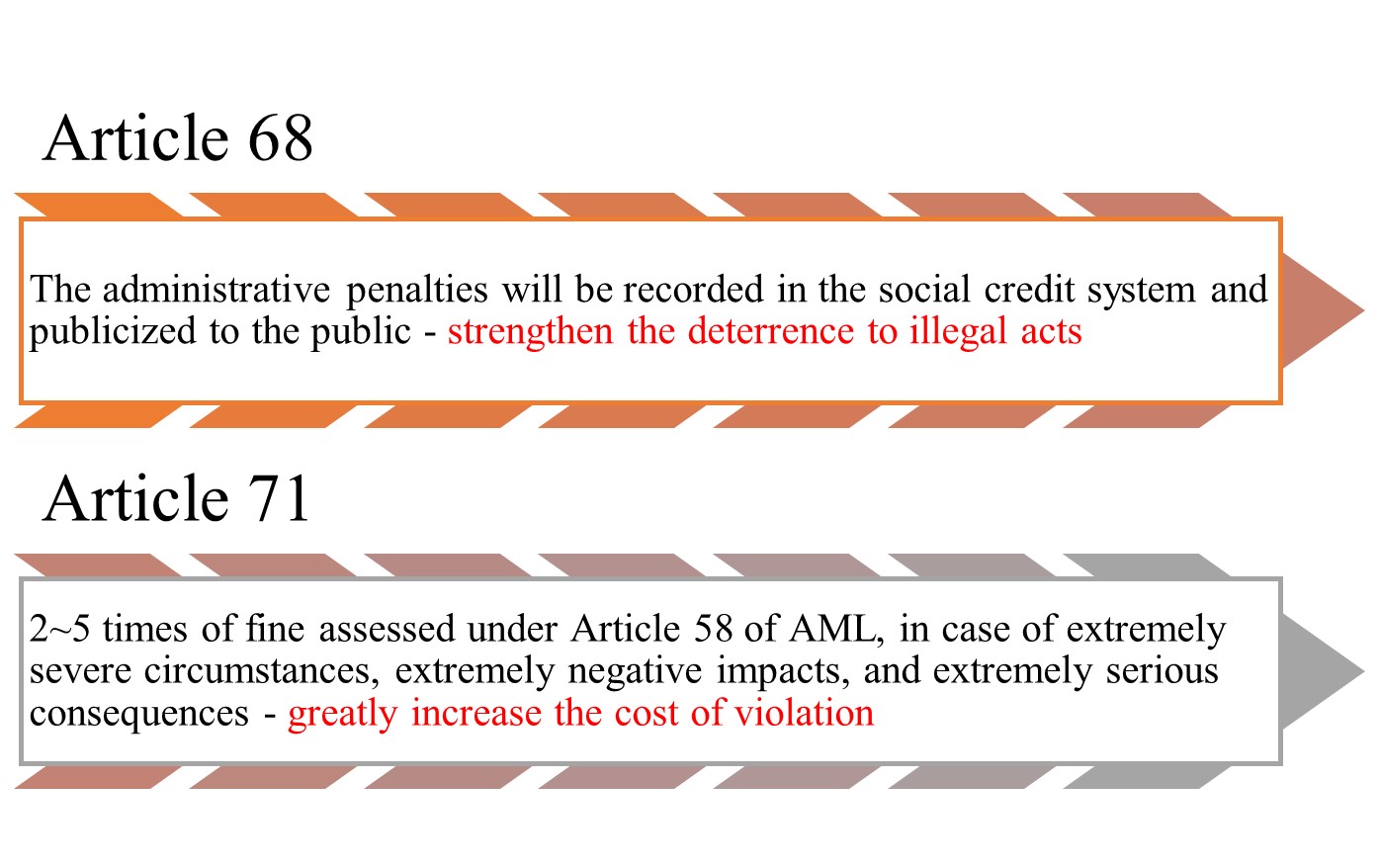
Figure 9 Other provisions to strengthen liabilities for violations
Compliance recommendations
(1)It is necessary to strengthen the inner retrospective investigation of anti-monopoly compliance work, examine whether there are transactions that have not been declared in accordance with the law and take remedial measures such as supplementary declaration in a timely manner while conducting day-to-day anti-monopoly compliance work. In addition, anticipation and risk management should be strengthened for potential default risks and litigation risks.
(2)According to the requirements of Article 58 of the Draft for Comments on Review Provisions, other undertakings involved in the concentration shall actively cooperate with the investigation conducted by the regulatory authorities to facilitate the schedule of the investigation.
(3)Pay attention to the connection between the new law and the current law. This is of great significance to the illegal acts that have been committed by enterprises before the new law takes effect while the effect continues to exist after the implementation of the new law. If the new law is applied, the enterprise may face hefty fines. Therefore, it is necessary to watch out the law enforcement trends and the promulgation of relevant regulations.
VII. Other revisions
1. Be more rigorous in legislative terms
The Draft for Comments on the Review Provisions has been linked with other laws and regulations in terms of specific terms, and the terms are more rigorous.
First, consistent with the revision trend of the Company Law, for example, in Article 4, the authority of the undertaking was changed from “shareholders' meeting” to “shareholders' meeting and other authority”; change “board of directors or board of supervisors” to “decision-making or executive bodies such as the board of directors”.
Secondly, distinguish the usage of “acceptance” and “filed a case”. In Articles 17, 18 and 21, the previous usage of “filed a case” was changed, and it was clarified that the term “acceptance” was used in the review cases for declaration of concentration of undertakings; “filed a case” is used in the investigative process for the illegal implementation of a concentration of undertakings. What is debatable is “not filing a case” and “revoking a case” in Article 66. According to the context, it is more appropriate to use “acceptance”.
2. The importance of “innovation” is emphasized in many articles
Echoes the AML (2022), the requirement of “innovation” has been added to several articles. Article 14 emphasizes that undertakings shall explain the impact of concentration on innovation in the description of the impact of concentration on competition in the relevant market; Article 20 clarifies that even if the threshold of a summary case is met, once the concentration of undertakings may have an adverse impact on innovation, it will not be regarded as such; Article 30 clearly requires that the impact on innovation should be considered during the review of the concentration of undertakings.
This suggests that relevant enterprises should attach great importance to the impact of business operations on innovation. In particular, transactions that should be subject to summary cases may be required to be declared in accordance with the procedures of ordinary cases if they may adversely affect innovation, which will have a great impact on the transaction process. Therefore, careful evaluation should be conducted before declaration.
3. Implement personal information protection requirements
In the context of the implementation of the Personal Information Protection Law, the Draft for comments on Review Provisions adds the expression of personal information in Article 15 and Articles 72 and 73. Article 15 requires the declaration obligor to mark personal information in the declaration documents, and Article 72 and 73 are the obligations to keep the personal information confidential for staff of the Anti-Monopoly Law Enforcement Agency, the SAMR , and other entities and individuals. The requirements reflect the integrity between laws. The handling of personal information by law enforcement departments during the review/investigation process of the concentration of undertakings shall comply with the special provisions on the handling of personal information by state organs in the Personal Information Protection Law.
4. Adds data, platform rules and algorithms in restrictive conditions
In order to reduce the effect of eliminating or restricting competition that the concentration has or may have, the undertakings participating in the concentration may propose a proposal with restrictive conditions to the SAMR. And normally the restrictive conditions include structural conditions and behavioral conditions. Article 39 of the Draft for Comments on Review Provision expands the content of restrictive conditions: among the structural conditions, the type of divestiture of “data” is added; in the behavioral conditions, “modifying platform rules or algorithms”, “promising compatibility or not lowering the level of interoperability” are added.
This reflects the characteristics of the digital economy and deserves the attention of platform companies and companies possess large-scale data. Antitrust enforcement authorities may impose additional restrictive conditions on data divestiture if the data involved in the concentration triggers competitive concerns in the transaction. It is recommended to engage data professionals in the early stage of the transaction to evaluate and analyze the possible competitive impact of the data on the transaction, so as not to affect the subsequent transaction arrangement and delivery, thereby avoid triggering liability for breach.
In addition, the risk of ex officio investigation by the antitrust authorities evoked by data integration involved in the transaction should also be emphasized. Once the concentration of undertakings is approved, enterprises still should pay attention to the antitrust compliance requirements involved in the use of data. If there are restrictive conditions for data divestiture, the enterprises should fulfill the conditions in an active manner.
5. Strengthen the liabilities of declaration agents
The Draft for comments on Review Provisions strengthens the liabilities of the declaration agents. Article 14 requires that declaration agents shall be responsible for the authenticity of the declaration documents and materials together with the declaration obligor; Article 66 stipulates that declaration agents shall examine the declaration documents and materials, if they conceal the relevant circumstances or provide false materials, they shall be punished in accordance with article 62 of the AML (2022)[6]. If the circumstances are extremely severe, the SAMR may decide not to accept the declaration of such agents.
Service agencies like law firms should strengthen the review on the authenticity of the materials in the process of declaration, otherwise they may face hefty fines, or even be blacklisted by the SAMR.
Annie Xue


Dr. XUE is a senior counsel supervising the compliance practice of GEN Law Firm. She specializes in regulatory affairs in cybersecurity and data protection, antitrust and anti-unfair competition, anti-commercial bribery, and Chinese social credit system. Dr. Xue has extensive experience in the said areas and profound understanding of the complicated issues standing at the intersection of those topics. Dr. Xue studied competition law at the College of Law of the University of Illinois at Urbana Champaign and obtained J.S.D. degree. She also participated in many research topics led by law enforcement authorities and academia as a postdoctoral fellow at the Institute of Law of the Chinese Academy of Social Sciences, and actively contributed to the formulation of competition and data regulatory policies. Before joining GEN, Dr. Xue served as a senior attorney in two Chinese law firms. She authored many articles and reviews related to legal compliance and served as an editor of The China Competition Bulletin hosted by Australia and New Zealand Government College.
Wang Yuxuan
Wang Yuxuan has worked in a unit under the Ministry of Industry and Information Technology for 4 years. Ms. Wang now focuses on antitrust,telecom compliance consultation, cybersecurity and data protection consulting, and has participated in many difficult and complex cases.












